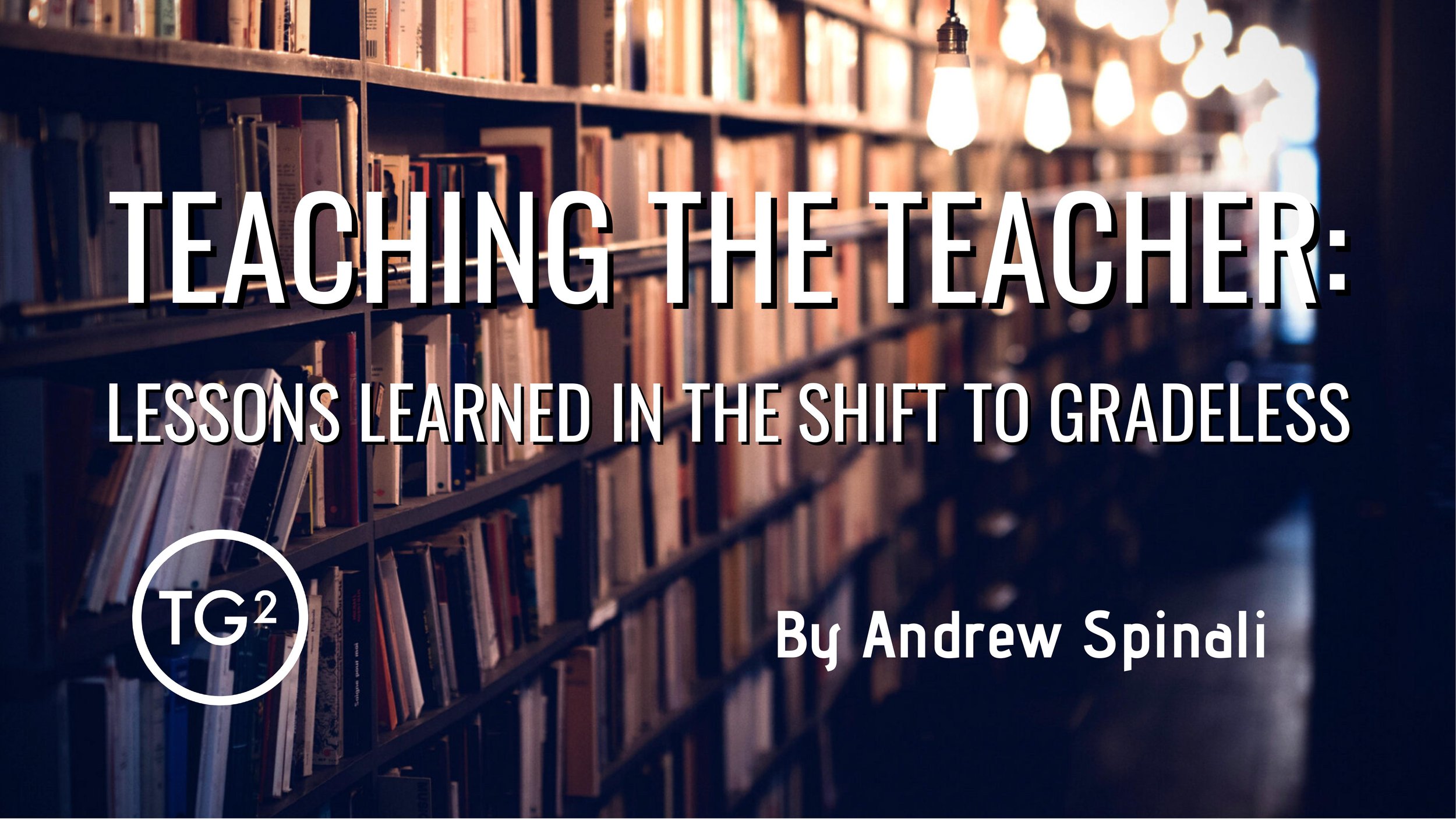Six Steps to Going Gradeless
Last summer I made the plunge to finally go gradeless. I was ready for my classroom to be centered around learning, not grades. I had visions of motivated students, a continuous flow of feedback, and energy for reviewing student work.
Teaching the Teacher: Lessons Learned in Shift to Gradeless
Much of the evidence for the gradeless movement focuses on its positive effect on students, as it should. However, when reflecting on the impact of deciding to shift away from traditional grading practices, I realize how much it taught me.
AP English Literature and the Pedagogy of Whiteness
Does AP English Literature and Composition by its very nature privilege whiteness and a white view of literature? Why content and the canon are only part of the problem.
My Journey to a Gradeless Classroom
I was nervous that going gradeless just wouldn’t work and I would have a revolt from the students and parents. None of these things happened. In fact, in all of my years of teaching, I don’t think that I have enjoyed myself more than this past year.
What really is an “A”?
When each new assessor and every new rubric category introduces more discrepancies and more variance, what does a grade even mean anymore?
Helping Students Prioritize with Due Windows and "Share"
Alfie Kohn has suggested learning should be something teachers do WITH students rather than TO them. Strict deadlines and an expectation to complete our assignments is a doing TO education.
Averageless: Setting better standards
I made a simple but effective change to my explanation of the system: I started referring to these courses as averageless instead of gradeless.
School is Literally a Hellhole
By continually training our eyes on a horizon “beyond the walls of the school”—whether that be achievement, authentic audiences, the real world, the future, even buzz or fame—have we drained school of its meaning, turning it into a wind-swept platform where we do nothing but gaze into another world or brace ourselves for the inevitable?
Cultivating Culture
We are famous, as educators, for asking others to take risks. Teachers do this to students, and administrators do it to teachers. We see risk taking as a key element of learning and growth. The problem is that we often assume that the conditions for risk are optimal.
Diving into Portfolios in a Gradeless Biology Classroom
While I had grown accustomed to standards-based grading in my old school, going gradeless was a split-second decision I made at the beginning of the school year, without really knowing what it meant. Luckily, the shoe fit.
Making Conferences Work
The process of building a portfolio and reflecting on one’s work teaches students important metacognitive skills needed to improve self-regulation. The conference allows students to demonstrate their best work and participate in the evaluation process...
How to Grade for Learning w/Ken O'Connor
This episode features an interview with Ken O’Connor, middle education leader, author of the book A Repair Kit for Grading: 15 Fixes for Broken Grades, and Standards Based Grading advocate.












